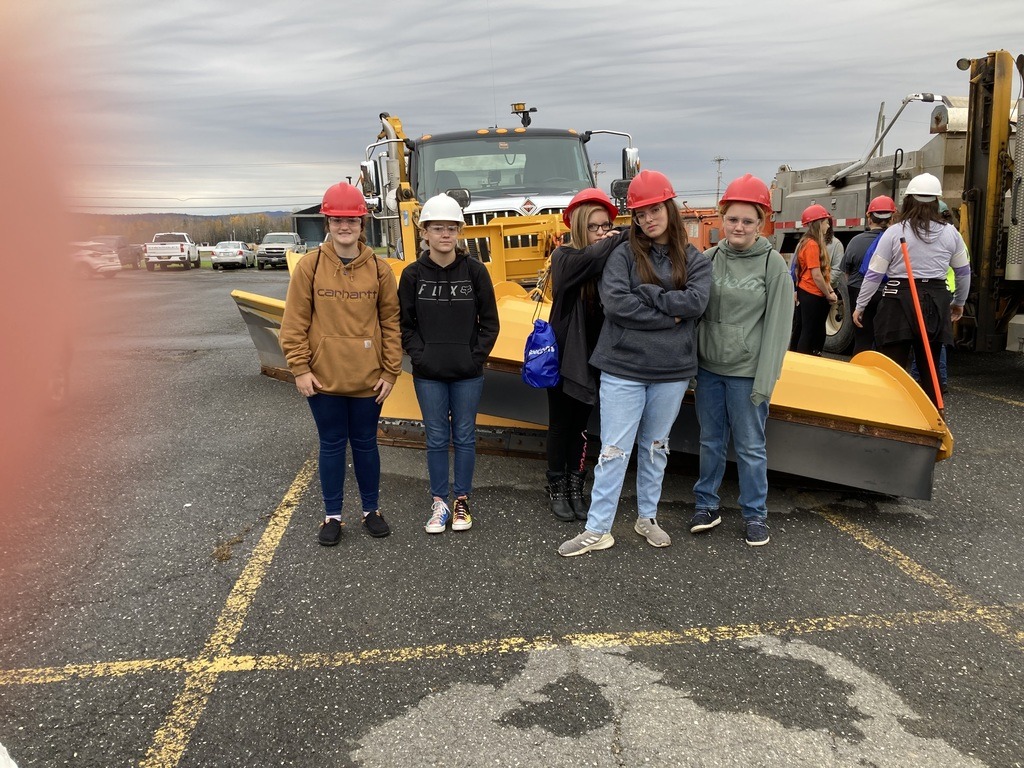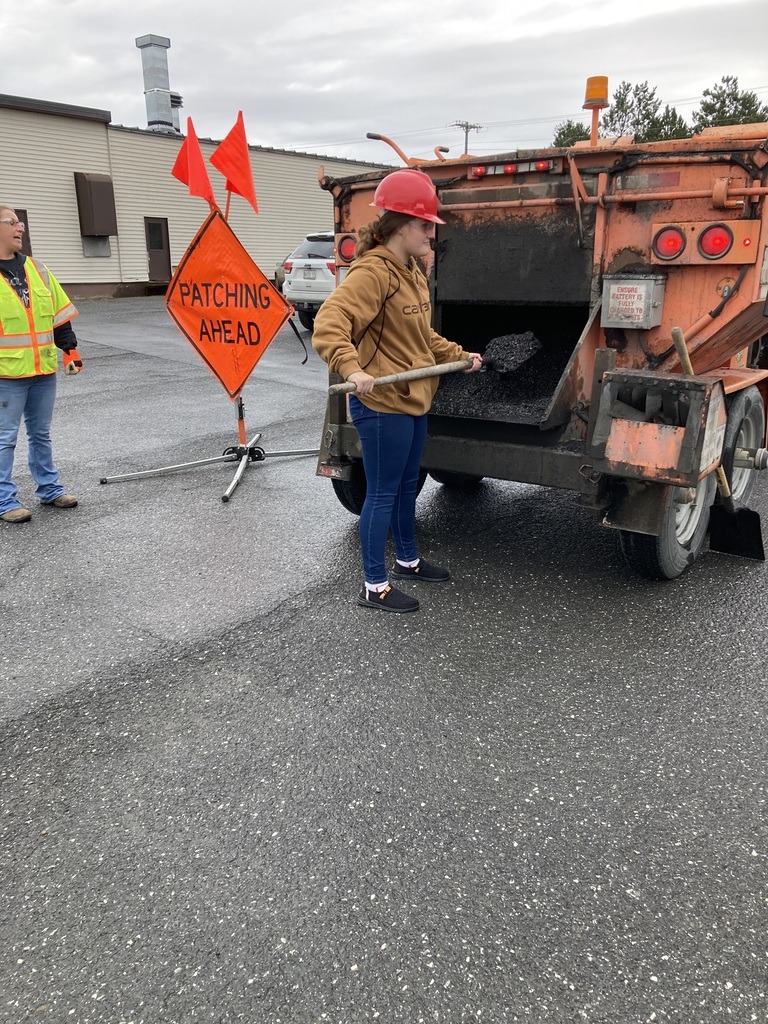
PRESQUE ISLE, Maine — The eighth grade girls from East Grand School learned how to fill potholes with tar during a hands-on program designed to introduce girls to historically male careers.
“We had to get the tar, scoop it up with a heavy shovel and carry it to the holes in the parking lot,” Elaina Noyes, 13, said. “As a girl being able to see these boy jobs that people normally look at and say ‘that’s a job a boy would do’ and looking at it and saying I can do that, was pretty cool.”
East Grand School regularly participates in the state’s Trades for ME program aimed at exposing girls to careers in traditionally male trades. East Grand eighth-grade girls made the trek to Northern Maine Community College late last fall to try out many of the skilled trades in hands-on workshops.
After gearing up with hard hats, safety goggles and reflective vests, the girls scooped road tar to patch pavement, got the feel of the tractor cab in an 18-wheeler and learned about a long list of possible career opportunities.
“These positions are in high demand and they are high wage. Exposing girls to such trades makes even more sense now than it did 20 years ago,” said East Grand School Counselor Ruth Ann Cowger.
Maine’s worker shortage is among the most severe in the nation with about 42 available workers for every 100 open jobs, according to the Bureau of Labor Statistics.

Many of the state’s 41,000 job openings are in high-paying skilled trades. Because young women are not often exposed to careers in heavy equipment operation, transportation, road construction, cable operation and welding, they have a hard time competing with men in those fields.
“Young women are not considering these careers because they haven’t seen women doing them and they don’t know much about them,” said Suzanne Senechal-Jandreau, regional manager of the Central Aroostook office of New Ventures Maine, the program that offers young women a chance to experience alternative career options through the Trades for ME program.
Since the 1990s there’s been a push for graduating seniors to attend college often at a high financial burden, leaving many with huge student loan bills and low paying jobs after graduation.
Additionally, in rural areas like Aroostook County, young Mainers had to move away from families to work in other states.
The pendulum is swinging away from sending everyone to college and back toward high paying skilled jobs with technical training that makes more sense to many East Grand students.
“I work with very low income folks in my district. We are one of the poorest districts,” Ruth Ann Cowger said. “Families that are already struggling financially and a four-year degree can often seem out of reach whereas a 10-month trade program or a two-year degree for the job you are going to have makes sense to people. It’s a very easy sell to my families.”
Cowger’s daughter Camryn Cowger, 14, was among the group of girls attending the Trades for ME program and she said the event was really social and centered on getting people to do things she had never done before.
“It was a lot of fun,” she said. “It opens up a lot of possibilities I wouldn’t have thought of that I could do.”
Noyes, who said her career goal is to be a writer, had hoped to also explore welding, but by the time they got there, all the slots were filled.

Instead, several of the students learned how to run a CNC (computer numerical control) machine. These complex machines have a number of applications including milling, routing and carving for example.
“We had a hockey puck shaped piece of metal and got to engrave our names in the middle with the CNC machine,” she said.
Lyndzey Shay, 13, had a bit of a different experience because she already had her career sites on becoming a logger, like her dad. In the forestry presentation, she knew what was going on because she is somewhat familiar with the profession, she said.
“I really want to do logging for Camryn’s dad because that’s who my dad works for,” she said. “ I felt I’d be OK to work in logging because I have other family members who are girls working in logging.”
East Grand teacher Angela Cowger, who is Ruth Ann Cowger’s sister, went with the girls for the Trades for ME program and said it opens doors for the students.
“For any group of young people at this age to go and see that women are in these trades and actually doing it is really powerful,” she said.
Senechal-Jandreau said the interest in the Trades for ME workshops is increasing and the next session is slated for about 150 participants on April 4 in Biddeford, at the Biddeford Regional Center of Technology. The sessions are free to schools and are funded by the Maine Department of Transportation and the Maine Department of Education.
“In the skilled trades, projection of how many jobs we need to fill in our workforce is concerning. There are a lot of opportunities in our state right now that people are not generally aware of,” she said. “How are we going to fill those? We need to tap all of our population, including young women.”







